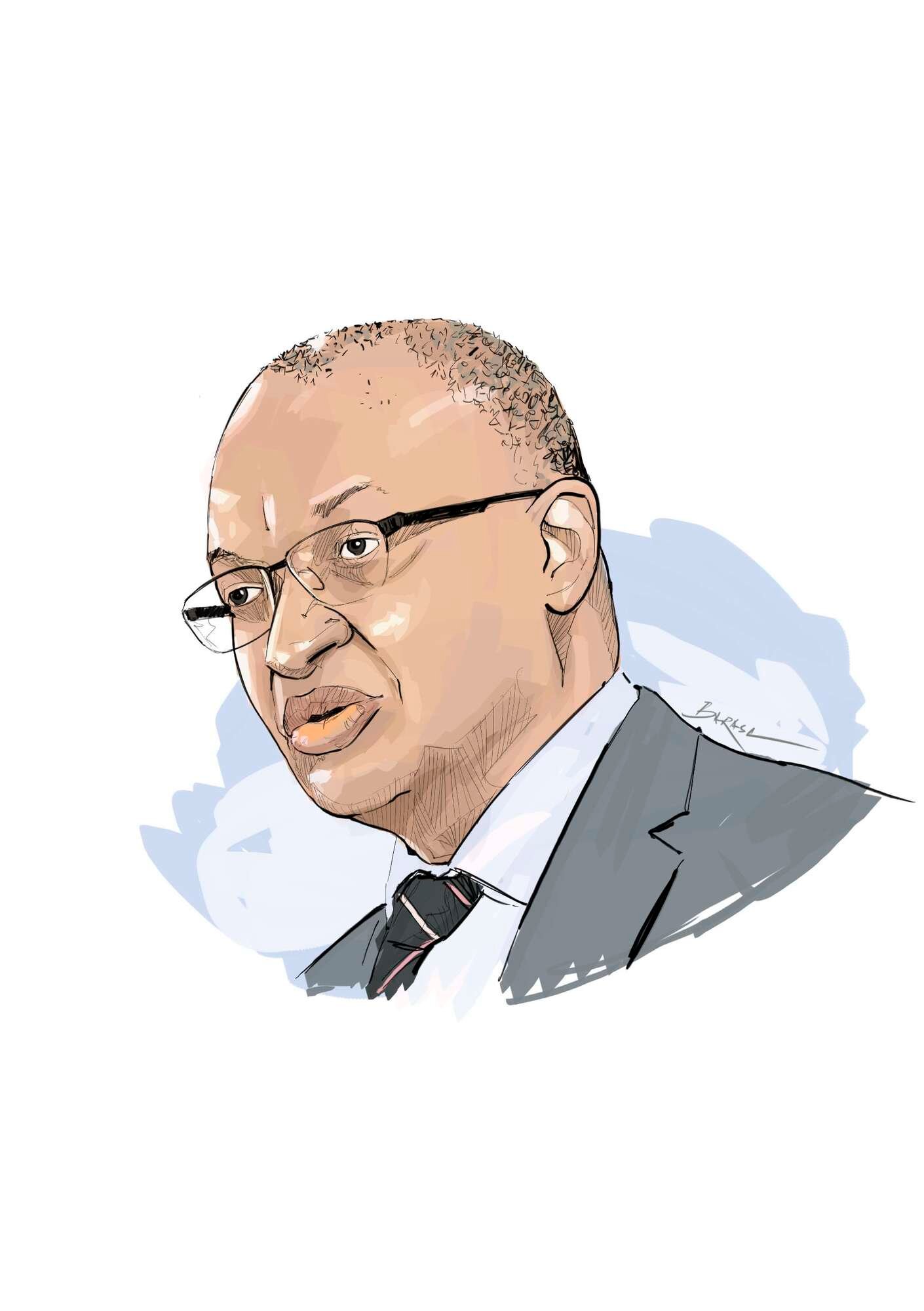[ad_1]
Economy
Patrick Njoroge won many battles but left the shilling weak
Monday June 12 2023
Central Bank of Kenya Governor Dr Patrick Njoroge. ILLUSTRATION | JOSEPH BARASA | NMG
In his eight years as governor of the Central Bank of Kenya (CBK) Patrick Njoroge’s defence of the shilling saw him lock horns with a diverse cast of characters, including the International Monetary Fund (IMF), market analysts, banks and the media.
Any claim that the currency was being managed was met with a sharp rebuke, while some banks found themselves in the dock for flouting currency trading rules.
As he hit out on what he deemed speculative attacks on the local currency, his defence of the shilling took centre stage in a tiff with the IMF in October 2018.
Read: Shilling weakens further past 133 mark
In a scathing report, the IMF alleged the shilling was overvalued by some 17.5 percent and warned it would classify the local currency as managed—citing a discrepancy between the shilling’s trading value and the widening current account deficit.
Dr Njoroge’s reply was a dismissal of the IMF’s External Balance Assessment (EBA) and EBA lite methodologies, which he said were tailor-made for advanced economies, noting, “We are the ones being used as a guinea pig”.
To him, the shilling was properly valued and dependent on the forces of demand and supply and no miscalculations existed as suggested by the IMF.
This would later become his standard view on the shilling even as it weakened progressively against the greenback.
“We don’t have a view about the level or direction of the shilling. We let the market drive the price of the shilling and only intervene to minimise volatility in the market since volatility can be destabilising in the foreign exchange market and other areas of the market,” he said in one of his media briefings.
A year later, Dr Njoroge would deliver on a promise of providing a deeper explanation of the weakening shilling. The assessment showed the exchange rate had held widely within the fundamentals, with recorded deviations remaining close to the equilibrium.
The CBK’s fight with the IMF on the shilling prompted a widespread industry debate that saw players call for a deeper review, with the Kenya Bankers Association CEO Habil Olaka, for instance, calling for the examination of the shilling’s true value.
During his term, Dr Njoroge exercised tight oversight of the foreign exchange market, on occasion accusing some players of attempting to manipulate the market for selfish gain.
This left many bankers, analysts and even journalists on the receiving end of his rebuke over comments and reporting on the shilling.
As he exits, he leaves a market that is afraid to publicly comment on the various issues affecting the industry, in fear of sanctions.
A banking sector analyst who requested anonymity told the Business Daily that he was once threatened by a senior officer at the apex bank after making comments on TV on his expectations of currency depreciation.
Similarly, a senior analyst at a tier I lender claimed the emergence of a parallel exchange rate during the Covid-19 crisis caused summons of the bank’s senior management to Haile Selassie Avenue.
Subsequently, banks and analysts became hesitant to make comments on the shilling. Institutions that fell afoul of forex exchange rules were also quickly put back on the straight and narrow.
Read: Kenya’s external debt balloons by Sh344bn on weak shilling
In March 2020, Absa Bank Kenya was temporarily suspended as an authorised foreign exchange dealer and was asked to reverse market positions that had been created as a result of what the CBK said were flagged transactions.
In 2022, the CBK similarly took action against Ecobank Kenya for what it deemed unsafe trading practices and breaches of the prudential guidelines on foreign exchange exposure limits.
The keen grip on the forex market, however, became a problem for the governor towards the tail end of his term, as the interbank market all but ground to a halt as lenders feared trading outside of the CBK’s expected market range.
As the gap between the official rate and that which lenders were willing to trade widened, the paralysis in the interbank forex market deepened, resulting in an uneven supply of dollars in the market and hoarding by concerned depositors.
Following pressure from the Executive, senior bankers and the CBK reopened communication lines aimed at restoring the interbank market—efforts that are still going on.
Overall, the governor leaves the shilling at its weakest point against the dollar —albeit caused by external shocks— at 139.22 units, having been trading at 97.55 units when he took office in June 2015.
In the intervening period, he provided perhaps the most robust defence of the shilling against perceived manipulation in the 57 years of the currency.
→[email protected]
[ad_2]
Source link



